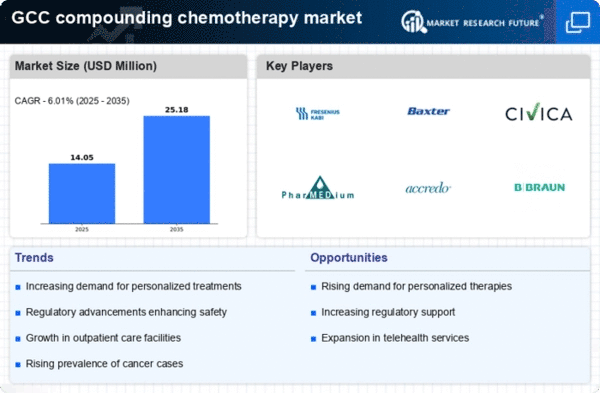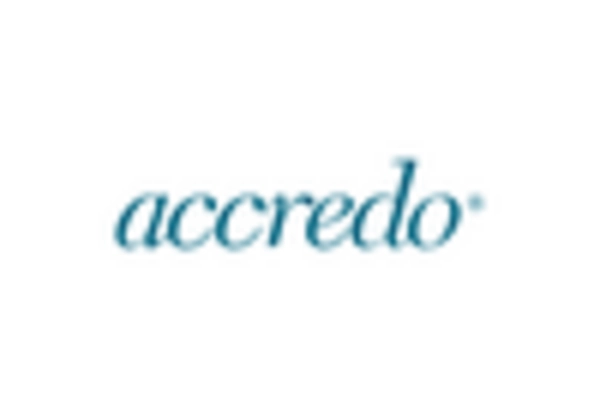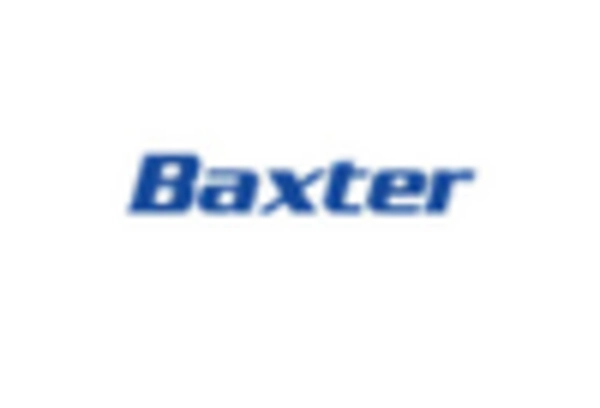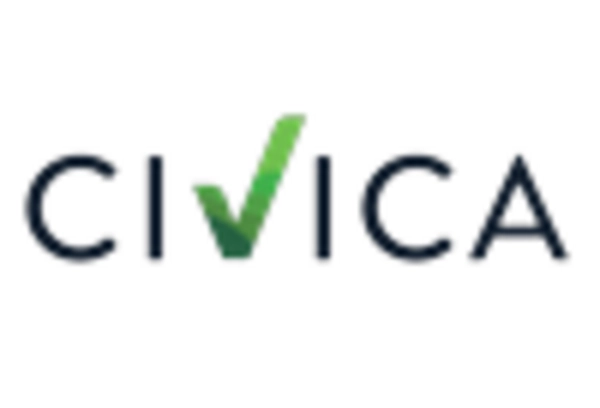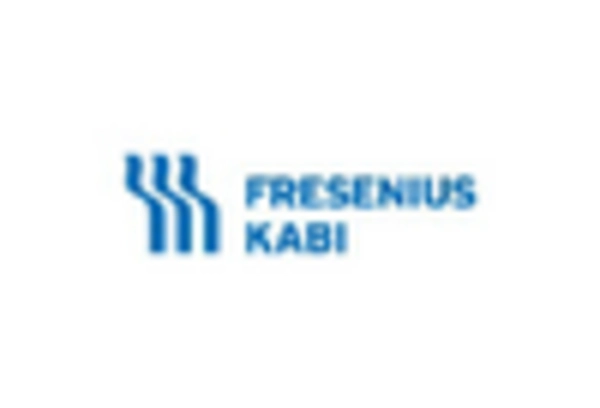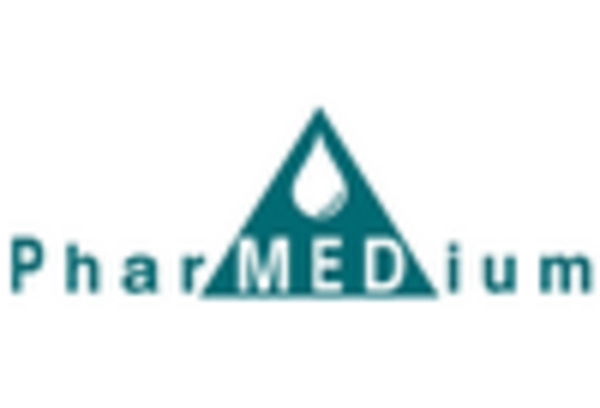Increasing Cancer Incidence
The rising incidence of cancer in the GCC region is a primary driver for the compounding chemotherapy market. According to health statistics, cancer cases have been increasing at an alarming rate, with projections indicating a growth of approximately 20% over the next decade. This surge necessitates the development of tailored chemotherapy solutions, as standard treatments may not be effective for all patients. The compounding chemotherapy market is thus positioned to meet this demand by providing customized formulations that cater to individual patient needs. As healthcare providers seek to enhance treatment efficacy, the reliance on compounded medications is likely to grow, further propelling market expansion.
Rising Healthcare Expenditure
Healthcare expenditure in the GCC region has been on the rise, driven by increasing investments in healthcare infrastructure and services. This trend is particularly relevant to the compounding chemotherapy market, as higher spending allows for improved access to advanced treatment options. Reports indicate that healthcare spending in the GCC is projected to reach $100 billion by 2026, with a significant portion allocated to oncology services. As healthcare providers expand their offerings to include compounded chemotherapy solutions, the market is likely to experience substantial growth, reflecting the increasing prioritization of cancer care in the region.
Regulatory Framework Enhancements
The regulatory landscape surrounding the compounding chemotherapy market is evolving, with governments in the GCC region implementing more supportive frameworks. These enhancements aim to ensure the safety and efficacy of compounded medications while promoting innovation in the sector. Recent initiatives have focused on streamlining the approval processes for compounding pharmacies, which could potentially reduce the time required to bring new formulations to market. As a result, the compounding chemotherapy market is expected to benefit from increased operational efficiencies and a broader range of available products, ultimately leading to market growth.
Growing Awareness of Customized Medicine
There is a notable increase in awareness regarding the benefits of customized medicine among healthcare professionals and patients in the GCC. This awareness is driving the compounding chemotherapy market as more stakeholders recognize the importance of personalized treatment plans. Customized chemotherapy can lead to improved patient outcomes, as it allows for adjustments based on individual responses to treatment. Surveys indicate that approximately 70% of oncologists in the region advocate for personalized approaches in cancer treatment. This shift towards individualized care is likely to enhance the demand for compounded chemotherapy solutions, thereby fostering growth in the market.
Advancements in Pharmaceutical Technology
Technological innovations in pharmaceutical compounding are significantly influencing the compounding chemotherapy market. The introduction of sophisticated compounding equipment and software has streamlined the preparation of chemotherapy agents, ensuring higher precision and safety. For instance, automated compounding systems reduce human error and enhance the consistency of drug formulations. The GCC region has seen a notable increase in the adoption of these technologies, with market growth estimated at around 15% annually. This trend indicates that as healthcare facilities invest in advanced compounding technologies, the overall efficiency and reliability of chemotherapy treatments will improve, thereby boosting the compounding chemotherapy market.


